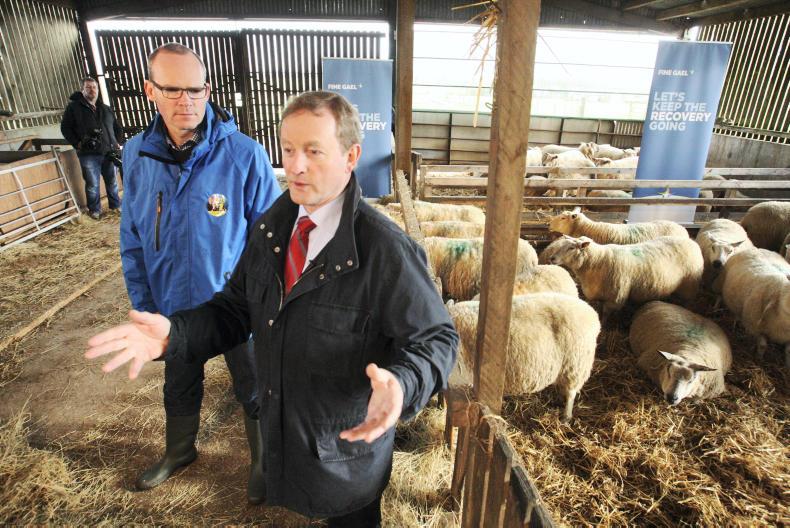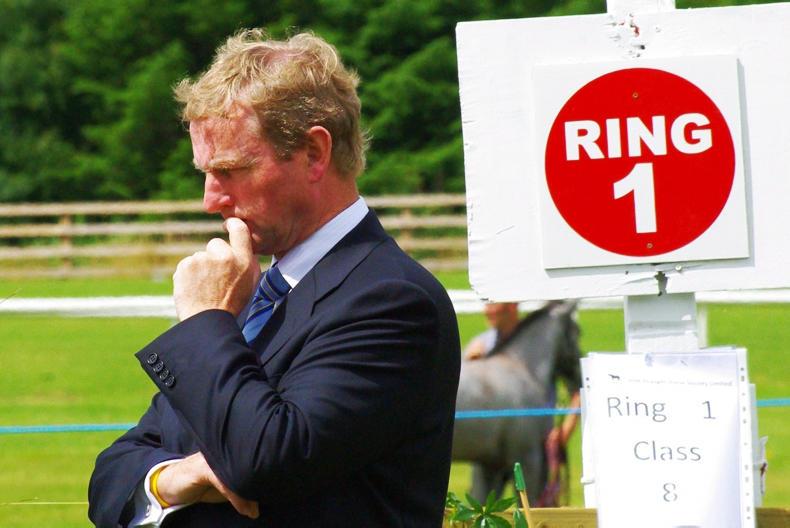When Enda Kenny won the 2011 election, his Fine Gael-Labour coalition government – with Simon Coveney in Agriculture House – first had to implement the cuts previously agreed with the Troika as part of Ireland’s financial crisis bail-out programme. In 2012, Irish farmers lost the Suckler Cow Welfare Scheme and the AEOS scheme did not open, making it the only year since 1994 without an agri-environmental scheme. Disadvantaged area payments were also cut.
Rural Development Programme
By June 2013, fortunes had turned. The Irish presidency of the EU brokered agreement on the CAP as we know it between 2014 and 2020. The exchequer matched €2bn in European funds to deliver the maximum level of payments allowed under the Rural Development Programme (RDP).
“Enda Kenny’s standing in Europe and relationships with political leaders across the EU were very important when Ireland held the EU Presidency in 2013, a time that coincided with the last CAP reform," IFA president Joe Healy said on Wednesday evening. "Enda Kenny’s strong support for agriculture was evident in in the taxation measures and funding of farm schemes implemented in recent budgets," he added.
Not all the schemes designed under the current RDP have been popular, though, with the Beef Data and Genomics Programme under-subscribed and GLAS still causing problems with payments.

At the same time, the Government was supporting dairy expansion in preparation for the 2015 abolition of milk quotas, investing, for example, in Glanbia’s Belview milk-processing plant.
Exports boom
Kenny’s government intensified the export programme initiated in 2010 with the Food Harvest 2020 strategy. A follow-up, Food Wise 2025, was drawn up while the Taoiseach and his ministers multiplied trade missions. From under €9bn in 2011, Irish food and drink exports grew to more than €11bn last year.
Some of the markets promised by the Taoiseach, however, have yet to materialise. Since he made the announcement in February 2015 that China was lifting its BSE ban on Irish beef, no factories here have been approved for export by Chinese authorities.
In 2014, Enda Kenny performed a political magic trick with the appointment of Phil Hogan as European Commissioner for Agriculture. While the Environment Minister responsible for the controversial establishment of Irish Water was out of the domestic political picture, Ireland secured the crucial portfolio in Brussels.
Minority government
Since the 2016 election, farming reforms proposed by the minority Government of Fine Gael and independents have struggled to make progress. The Heritage Bill, proposed in late 2015 to introduce flexibility in hedge cutting and burning dates, is still waiting for parliamentary approval. The National Broadband Plan – due to deliver connectivity to all rural households – was delayed again, and key policies to determine how Irish farmers will meet binding climate change targets have been slow to materialise.

Read more from The Dealer
Creed marks his first year in office, but has a big decision to make
The next Taoiseach will be elected by the people – or at least some of them
When Enda Kenny won the 2011 election, his Fine Gael-Labour coalition government – with Simon Coveney in Agriculture House – first had to implement the cuts previously agreed with the Troika as part of Ireland’s financial crisis bail-out programme. In 2012, Irish farmers lost the Suckler Cow Welfare Scheme and the AEOS scheme did not open, making it the only year since 1994 without an agri-environmental scheme. Disadvantaged area payments were also cut.
Rural Development Programme
By June 2013, fortunes had turned. The Irish presidency of the EU brokered agreement on the CAP as we know it between 2014 and 2020. The exchequer matched €2bn in European funds to deliver the maximum level of payments allowed under the Rural Development Programme (RDP).
“Enda Kenny’s standing in Europe and relationships with political leaders across the EU were very important when Ireland held the EU Presidency in 2013, a time that coincided with the last CAP reform," IFA president Joe Healy said on Wednesday evening. "Enda Kenny’s strong support for agriculture was evident in in the taxation measures and funding of farm schemes implemented in recent budgets," he added.
Not all the schemes designed under the current RDP have been popular, though, with the Beef Data and Genomics Programme under-subscribed and GLAS still causing problems with payments.

At the same time, the Government was supporting dairy expansion in preparation for the 2015 abolition of milk quotas, investing, for example, in Glanbia’s Belview milk-processing plant.
Exports boom
Kenny’s government intensified the export programme initiated in 2010 with the Food Harvest 2020 strategy. A follow-up, Food Wise 2025, was drawn up while the Taoiseach and his ministers multiplied trade missions. From under €9bn in 2011, Irish food and drink exports grew to more than €11bn last year.
Some of the markets promised by the Taoiseach, however, have yet to materialise. Since he made the announcement in February 2015 that China was lifting its BSE ban on Irish beef, no factories here have been approved for export by Chinese authorities.
In 2014, Enda Kenny performed a political magic trick with the appointment of Phil Hogan as European Commissioner for Agriculture. While the Environment Minister responsible for the controversial establishment of Irish Water was out of the domestic political picture, Ireland secured the crucial portfolio in Brussels.
Minority government
Since the 2016 election, farming reforms proposed by the minority Government of Fine Gael and independents have struggled to make progress. The Heritage Bill, proposed in late 2015 to introduce flexibility in hedge cutting and burning dates, is still waiting for parliamentary approval. The National Broadband Plan – due to deliver connectivity to all rural households – was delayed again, and key policies to determine how Irish farmers will meet binding climate change targets have been slow to materialise.

Read more from The Dealer
Creed marks his first year in office, but has a big decision to make
The next Taoiseach will be elected by the people – or at least some of them








 This is a subscriber-only article
This is a subscriber-only article



















SHARING OPTIONS: